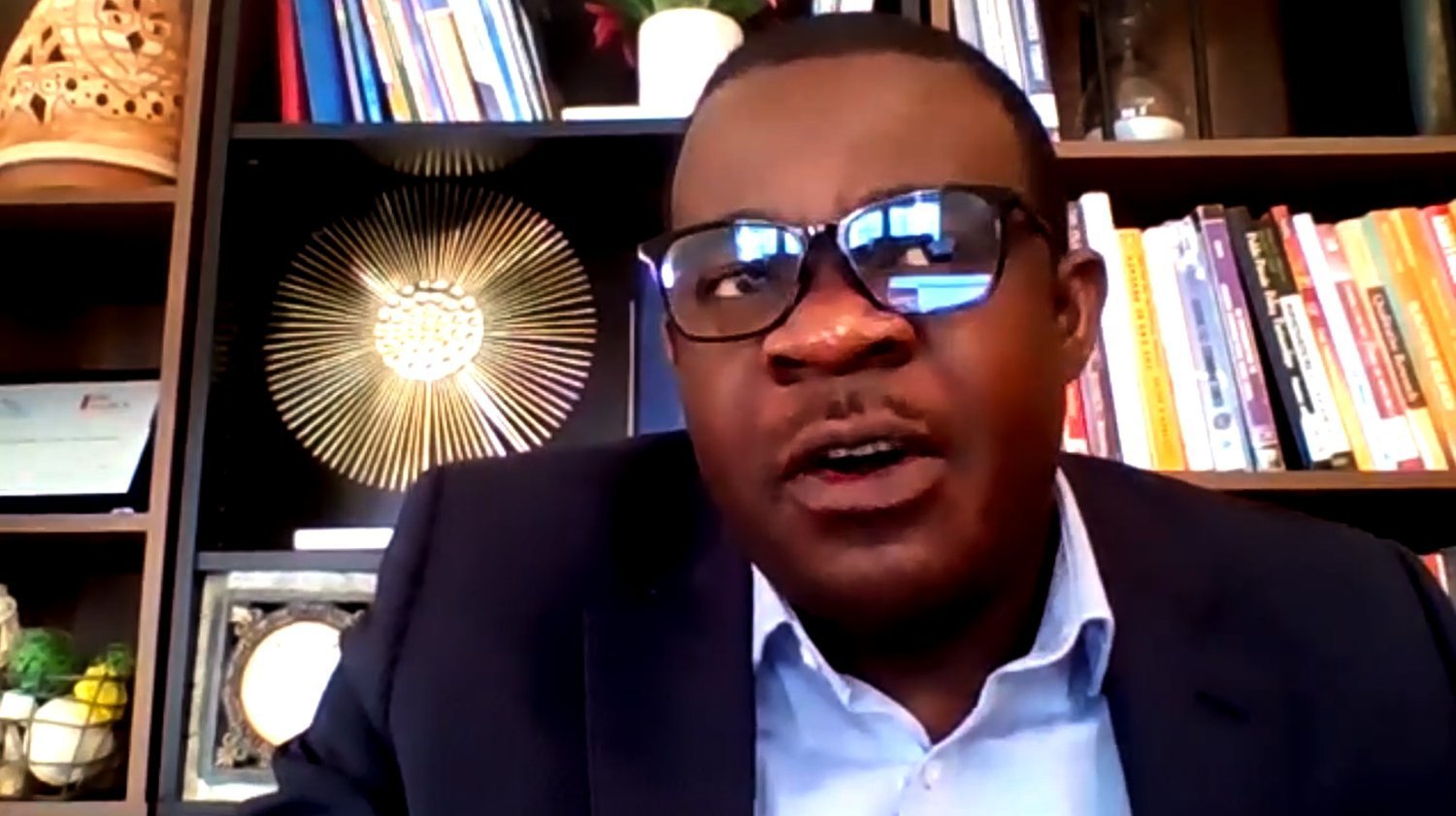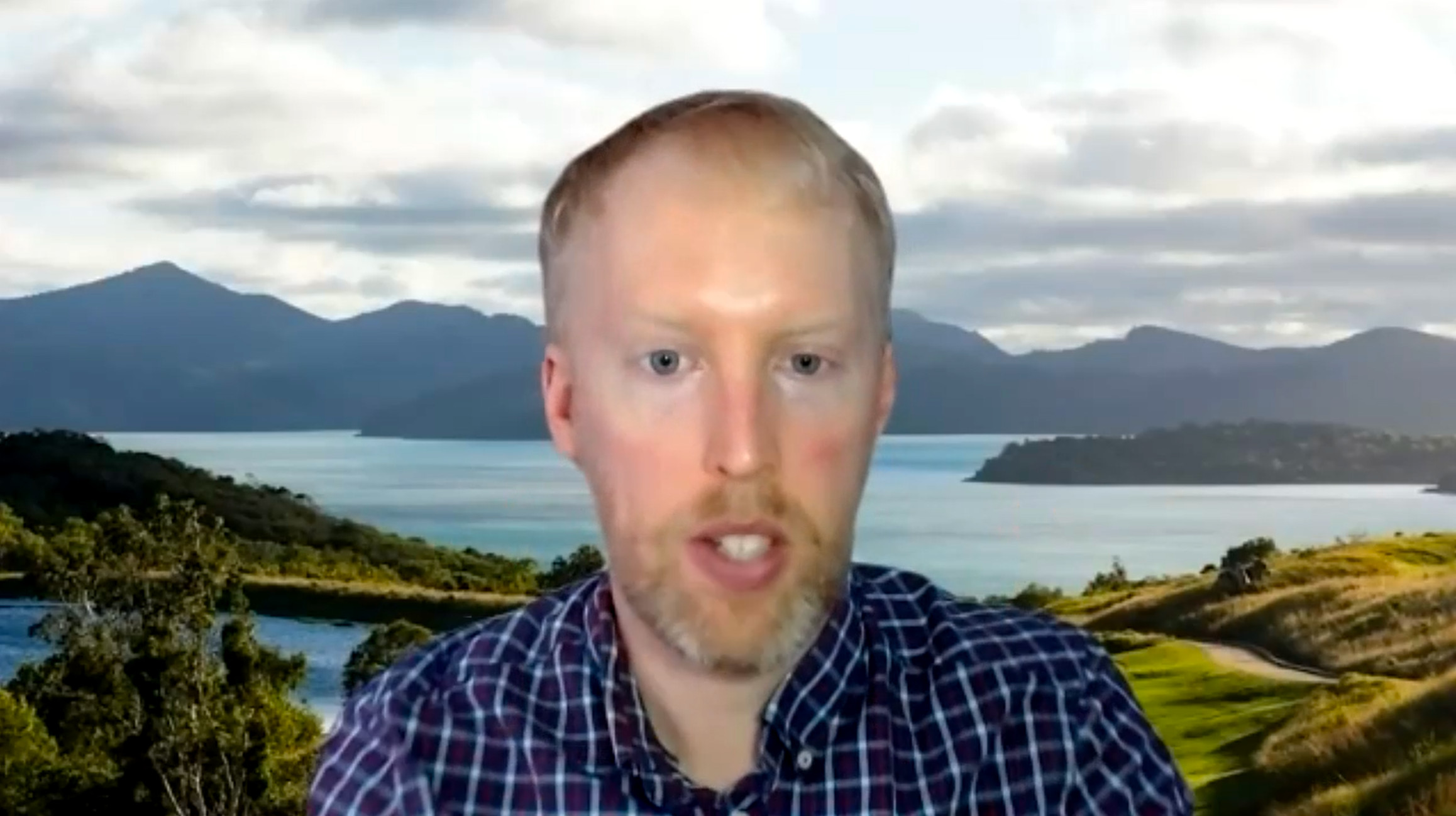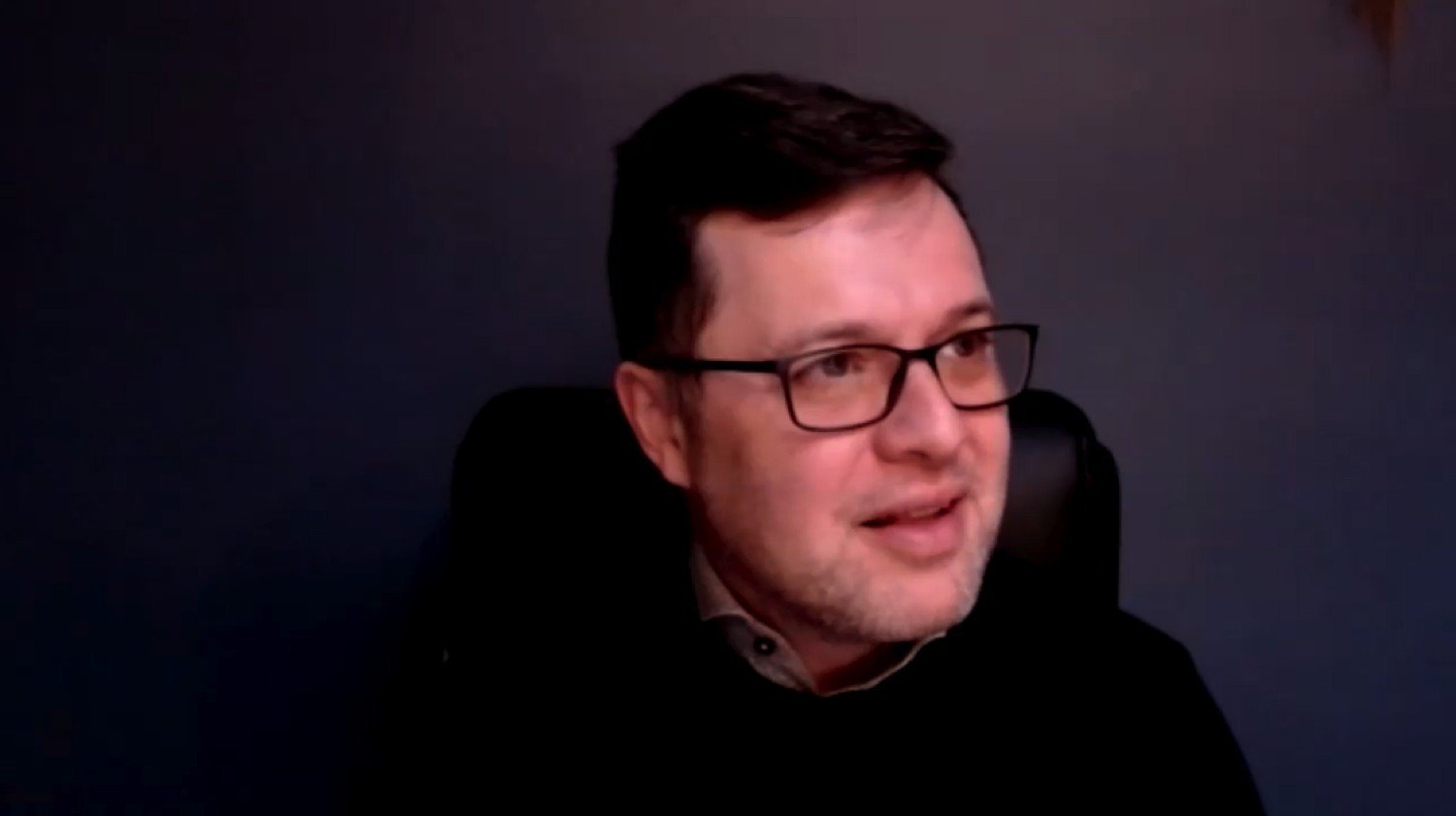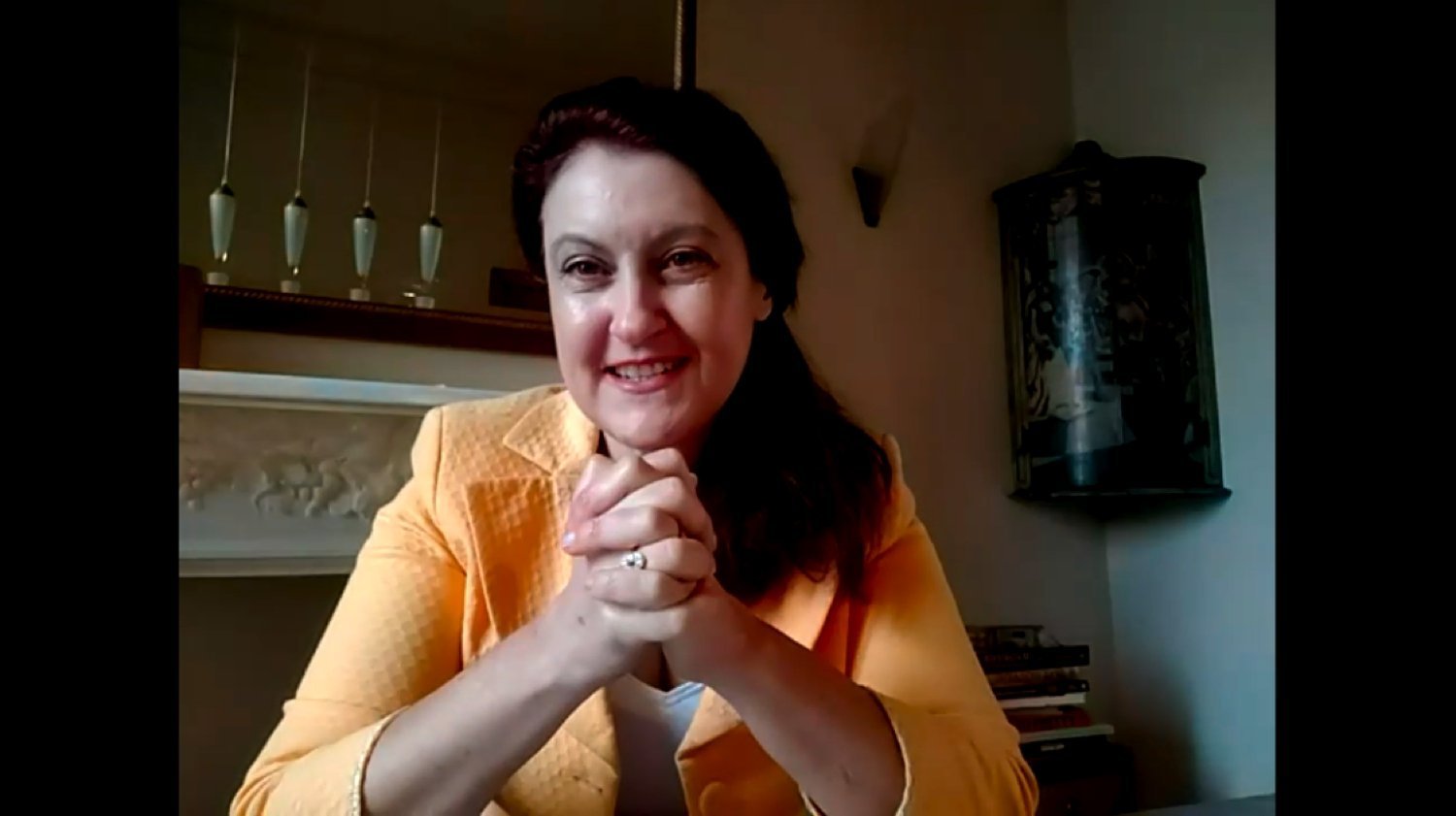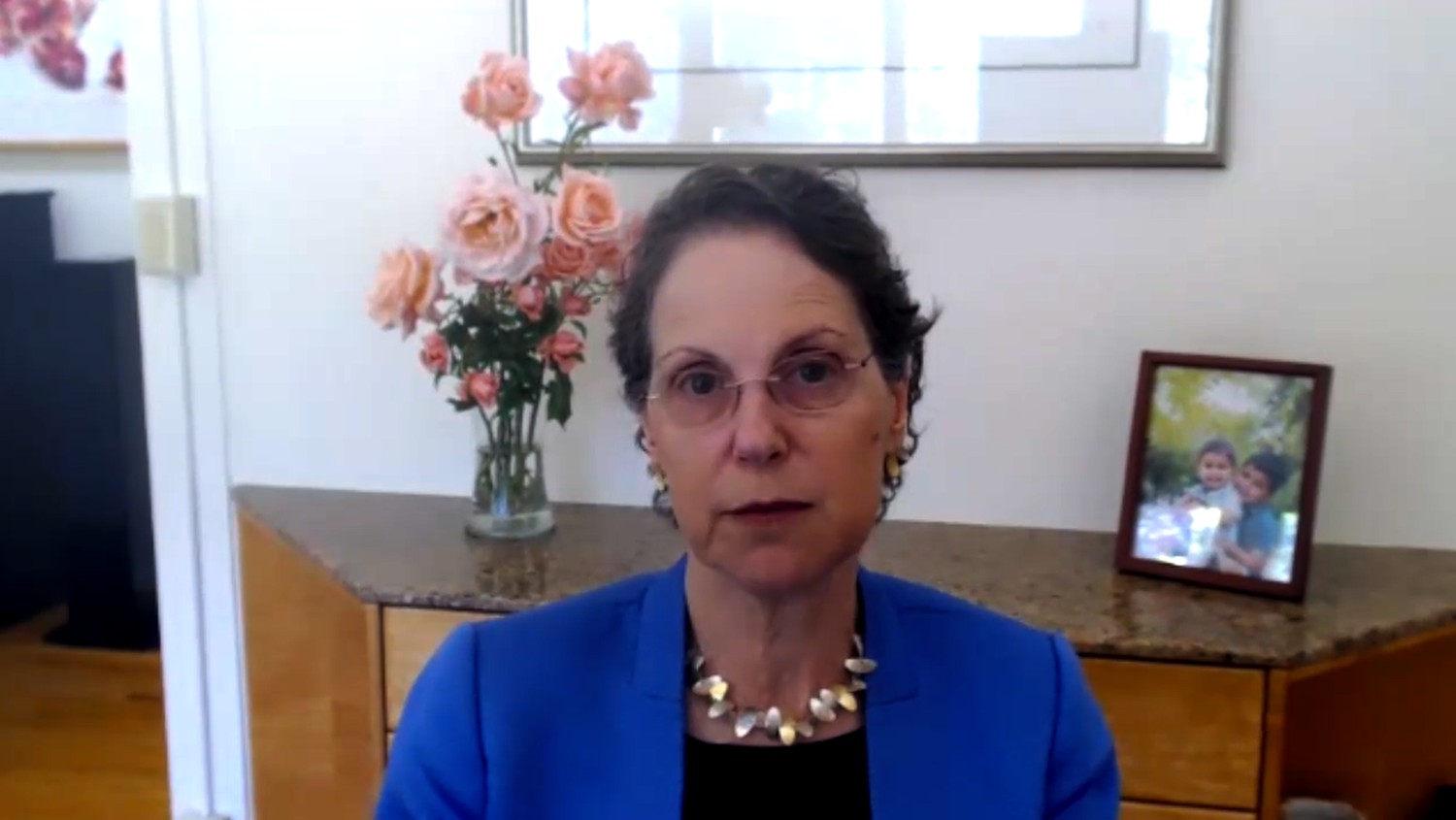Megan Greene
American. Economist. Global Chief Economist and Senior Fellow · Harvard Kennedy School
1. Why does economics matter?
So economics is one lens to understand the world around us and organize people and the tools they have to make stuff and consume stuff. And so economics matters because it’s one lens, but of course it overlaps with a million other different lenses. And so I would say you couldn’t just have an economic viewpoint on things. It matters, but it’s not sufficient. So you’ve also got to consider a whole bunch of other lenses. Economics has more of a focus on kind of production and efficiency and consumption than some other fields would, so it does give us a sense of what makes the economy run. Obviously, it’s in the name - economics - but I would highlight that looking at economics alone is really difficult. I can give you a real life example from my time in the private sector in asset management, where I was the chief economist and was constantly told to only write about economics. And I found that both asinine and impossible because you can’t only look at one field.
2. What are the differences between economic science (academic economics) and economic engineering (policymaking)?
So I would say there’s sometimes overlap when we get things right between economic science and economic engineering, where the academics in their ivory towers are working on models and think things will happen a certain way and give policy prescriptions based on how things are supposed to happen, and then the policymakers go and actually implement that policy. And you get the results that you expect. That’s the desired-for outcome. But it only happens sometimes. And there are a bunch of reasons for that.
I think one is that we live in a really complex world and a lot of economic science assumes that we have pretty simple systems. And so often the complexity in the actual world means you end up with results that theorists don’t really understand. I also think that if you look at the individual actors, the theorists have to make assumptions about them and often they’re wrong. So you have to consider that actors are pretty complex beings as well and that they interact with each other.
So there are things like social networks that economic theorists don’t really know how to model all that well, or haven’t incorporated into models all that well. There’s behavioral economics, which again assumes that everyone is not rational but there are all kinds of irrational decisions that people make, and then they transmit them to one another. And so I think the theorists don’t do a fantastic job of appreciating how much of a constantly evolving sort of organism the system and the actors in it are.
They have to necessarily simplify in order to model. And so when that’s the case, often you’ll come up with policy prescriptions and policymakers will go and do what they’re supposed to do and it won’t work out at all.
3. What role does economics play in society? Does it serve the common good?
This is an impossible question. So economics, the role it plays in society is to try to understand how to optimize and how to make things as efficient as possible.
I think that’s generally the goal of economists and of economics. And a system in which you are doing everything optimally so that everyone is better off is the best kind of system. It doesn’t end up always playing into the common good, however. You end up with winners and losers in economics. So you’re trying to find the most optimal role for everyone on average. And in reality, when you disassociate that average, there are some who win and some who lose.
And so generally, on average, the common good is in theory, better off. But that doesn’t actually apply to individuals. And so I think this is something that economists have largely ignored for a while. We often work in means and ignore the more granular data. And I think we’re starting to address that. You see it in policy in particular, all this discussion about inequality across the developed world. But you also see it in terms of the field in academics.
So normally I’d say economists have very specific silos and they don’t tend to talk to one another - so the micro economists go to microeconomics conferences and the macroeconomists go to macro conferences and they never, ever participate in the same things. And those silos are starting to break down, I think largely off the back of the global financial crisis, as economists recognize maybe they weren’t getting everything right and we’re missing some things, and that there were these new drivers of things like inequality.
So all of a sudden, macro and micro are starting to meld together a lot more than they used to. And I think that’s probably a positive thing. So it doesn’t always work in terms of the common good. On average it might, but averages conceal a whole lot.
4. Economics provides answers to problems related to markets, efficiency, profits, consumption and economic growth. Does economics do a good job in addressing the other issues people care about: climate change and the wider environment, the role of technology in society, issues of race and class, pandemics, etc.?
So unfortunately, I think economics really falls down on everything that is outside the normal confines of economic growth, which we have a really hard time as economists measuring. We have a hard time measuring both GDP and also GDP deflater, so it’s difficult to measure inflation as well. And yet, knowing that we have all these measurement problems, economists still sort of maniacally pursue GDP growth. There’s this kind of single-minded focus on it as the policy prescription that will heal all wounds. And growth - economic growth - does tend to help a lot, but it doesn’t help these things that fall out of our GDP growth models. So if you want to boost your GDP growth, you can have a massively bloated financial services sector, unbelievably expensive health care and a load of prostitution and drugs, and if you want to include that in your GDP growth, then that will boost it.
So there are ways to boost this one thing that we’re all obsessed with that aren’t actually in society’s best interests at all. And so economics doesn’t do a great job of considering things like externalities, so climate falls into that, or considering distribution at all. So GDP growth, again, is just an average measure. It doesn’t really consider who’s winning the gains and who isn’t and what the social and political implications of that are.
And so I think that there’s some recognition amongst economists that maybe GDP growth is faulty, that we don’t know how to measure it that well - we don’t include things like housework in GDP growth but does that mean that there’s no value in it? Certainly not. We know that we don’t know how to measure new technologies and the implications of new things on inflation. Half of what we sell this year, we didn’t sell last year. So how do you figure out a year-on-year growth rate - and that works just for goods, forget about services which are even more complicated.
So in trying to figure out your real GDP growth figure, there are all kinds of problems and there’s some appreciation of that. The problem is that there aren’t any very satisfactory alternatives. So you can try to measure happiness, for example. But often it’s done through surveys and it’s a really subjective question. My definition of happiness is probably different from yours, and so how do you compare across a large population? That’s unsatisfying.
You can come up with qualitative measures like: do people live with their families for a long time, are there high or low divorce rates, is the weather nice in a place and try to come up with some measure of well-being that way. You can also try to figure out a distributed ledger for incomes so you can use tax data and survey data to try to figure out what parts of GDP go to whom exactly. And that’s pretty difficult, that’s full of measurement problems as well.
So there are all these other ways to try to integrate things like climate change and inequality into economic growth figures or to at least supplement GDP growth figures with some of these other metrics. But there is no silver bullet, unfortunately. And so there I would say that economics is very much an art more than a science in trying to figure out how we consider these other really important issues that younger people tend to care much more about than older generations. And I think we can assume that will continue to be the case.
5. As we live in an age of economics and economists – in which economic developments feature prominently in our lives and economists have major influence over a wide range of policy and people – should economists be held accountable for their advice?
Absolutely. Economists and everyone else should be held accountable for their advice. There’s no point in constantly following the advice of a field that’s constantly wrong, for example. But I would say that economists are sometimes, or often are held accountable for their advice. In the private sector, if you’re an economist and your forecasts are consistently wrong you may lose your job, but at the very least no one’s going to read your stuff because you’re constantly wrong, I’d say.
If they do, it’s because you’re thought provoking, but they know that you’re wrong. They just want you to kind of stress test the client’s own thoughts. So there’s some value there. But generally, if your forecasts are wrong, everybody figures that out pretty quickly. In the public sector I think if you’re an economist and you’re wrong and you’re providing bad policy advice, I think there are tons of analysts who are crawling all over that, pointing that out.
And so if you have gotten things wrong, I think that gets out, particularly in an age of social media and ubiquitous news, and also in an age of fake news, unfortunately. So some people will get a bad rap unnecessarily. But I think that happens often when it’s not clear that policy advice has been right or wrong, because these issues are often really thorny. Economists do have an outsized role, I think, in policy now relative to previously. I don’t think it’s because they’re better at what they do.
In fact, I think we have a lot of soul-searching to do as economists to figure out how we’ve gotten the past 15 years in particular so wrong. I think it’s positive that we’ve had that wake-up call, but I do think that people will remember who stood out and said “we’re not going to have high inflation or robust inflation for decades.” People will remember who stuck their neck out and said, “I think we’re going to go into a massive financial crisis.”
Names have certainly been made on those calls. And if you get things wrong, everybody remembers twice as much. So I do think economists are held accountable often.
It’s a bit tricky because economists often end up being politicians as well in government. And I can think of one example in particular: every single economics conference I attend ends with someone saying we should really invest more in education. I think every economist can agree that that is generally a good idea.
And yet no one ever does it because the payoff is beyond an electoral cycle. So I do think that when economics and politics coincide, which they often do, then economists can give great advice and yet it’s not politically viable. And that’s the planet that we’re living on. So you can’t do much about it. But it doesn’t mean that economists didn’t get it.
I also think now, particularly in this age of Bidenomics, when everybody’s trying to figure out what the historical comparison is, and FDR brought up a lot, and I just think there’s an important point to be made about how we remember economic policy having been made, because now everybody sort of thinks FDR had this grand plan, that was his plan all along, and he went and he implemented it and was a hero. And that’s not actually how it happened. Often economic policymaking involves throwing some spaghetti against the wall and the spaghetti that sticks, you throw more of that. And so good policies can come out of that sort of approach. And it’s often not remembered that actually that’s often how policy’s made.
6. Does economics explain Capitalism? How would you define Capitalism?
I was going to say, what is capitalism? That’s the first step of that question, I guess. I mean, capitalism is a way of organizing workers and their tools to produce the stuff that other people want to buy. And so capitalism has different strains or different variants, we can say now in an age of pandemic, in different countries. So American capitalism looks very different from British capitalism, even though the two are often grouped together under Anglo-Saxon capitalism, where there is this kind of Washington consensus-driven assumption that markets do things most efficiently and usually get things right. And so the more that you can just let markets work, the better your economy is going to be.
So I was just explaining: American and British capitalism are often considered the most similar, but there are significant differences between the two of them as well. And then there are differences between Anglo-Saxon capitalism and European capitalism, for example, whereby Anglo-Saxon capitalism really believes that markets are the most efficient, and if there are losers, then that’s too bad because markets allocate capital and other goods and services and inputs the best.
In Europe that’s not the view. There is a view that actually we should look out for winners and losers and consider that in our version of capitalism. So, for example, in Germany, part of the boards are workers of companies to make sure that workers have some kind of say in top-level decisions and that boosts their worker power.
So I’d say capitalism is very different in different places, and it is just as hard to define capitalism as it is socialism or any other kind of framework for thinking about how the economy is organized. I think our brand of capitalism now is being significantly questioned, though. So there was a poll that came out, it was done by Pew Research a couple of years ago. They asked millennials if they thought that capitalism worked for them. And for the first time ever, a majority said no, which is interesting.
And they preferred, in another question, they preferred socialism to capitalism. In another question, they were asked what they thought socialism meant and it was clear they had no idea and that they had defined it roughly as equality for all, which is not what socialism is. But it’s interesting that if you take that to be the definition, a majority of millennials thought that actually capitalism was problematic because there’s too much inequality. I think that’s sort of the lesson you can draw and this has been a new trend.
So I think a lot of people do feel that capitalism isn’t really working for them. It’s left a lot of people behind, the kinds of liberal elite ideas that go along with capitalism like globalization haven’t served everyone. And so the idea has been, well, the markets are most efficient, so just let them run. Now, I think there’s an increasing view that actually governments do some things fairly well and should probably step in and try to even things out a bit and also keep the markets honest.
So I think we sort of assumed that markets were efficient, but that they’ve worked. And now I think there’s much more of an assumption that the markets are rigged, that it isn’t just that governments established the system, the environment in which markets work. Actually, markets and big companies are huge players with big voices because they have a lot of money behind them and they can lobby policymakers. So markets are kind of working in the environment that they set up for themselves.
They’re totally rigged. And so I think that there’s an increasing acknowledgement of that, and appreciation that the kind of capitalism that we have now really isn’t working for everybody. And that will have social and political implications, we’re already seeing some of them. You could argue Trump was an example, Brexit is an example, populist movements across Europe could be an example, particularly with upcoming elections in, for example, France, also Italy probably. And so it’s not just kind of fringe areas where this is becoming a problem.
It’s becoming a problem in big mainstream countries. And so we need to rethink the brand of capitalism that we’re practicing, whichever variant of capitalism you are employing.
It highlights the huge divergence we’ve had between the markets and what’s going on in the regular economy off the back of the global financial crisis, but also off the back of this pandemic. And so I think that underscores this idea that the markets are kind of rigged, they’re not actually efficient.
Policy has actually back them up. Central banks have provided a put so that the markets are always going to do well, because you can bet that a central bank is going to step in if there’s a downturn. And at the same time, Joe Sixpack on the street is out of a job and really struggling. I mean, there is this huge divergence, but I think that’s also getting people’s attention and thinking capitalism isn’t really working.
7. No human system to date has so far been able to endure indefinitely - not ancient Egypt or Rome, not Feudal China or Europe, not the USSR. What about global Capitalism: can it survive in its current form?
No, I don’t think it can survive in its current form. And I don’t think that’s really a good or a bad thing, I just think it’s an inevitability. As I was saying earlier on, I think that as we think about complex actors in complex systems, we build these models that suggest you sort of have a state of the world in which everything’s operating. We have to consider more that you don’t have a state of the world, that actually the world’s constantly changing, actors are constantly changing their minds based on everything going on around them, which is also changing.
So I think you need to think of the economic system as a more organic being than sort of the static framework that we use to sort of wrap our heads around how the economy is organized. So I don’t think that the current brand of capitalism or any other brand of capitalism is permanent. I think that these systems are going to constantly be evolving, but particularly in light of the fact that so many people are struggling off the back of a massive crisis.
And that in and of itself is off the back of an incredibly long period of really weak, unsatisfactory growth. It’s leaving a lot of people asking: so we’ve grown, generally, but what does that really mean for me? There was a recovery, but whose recovery was it? I think increasingly these things are being asked. And so as we figure out the answers to that and as we figure out sort of what kind of economy we want to be when we grow up, which I think every economy is in the constant process of doing, we’re going to realize it doesn’t look like exactly what we have now.
And so I think there will be an evolution inevitably. And that’s a good thing, but it’s not to say that everything with our current system is wrong. It’s just to say that it’s always going to be changing inevitably because it’s a complex system.
8. Is Capitalism, or whatever we should call the current system, the best one to serve the needs of humanity, or can we imagine another one?
So the first half of that question is a lot easier to answer than the second half. And I would say, no, it can’t be the best system because as I mentioned, everything’s constantly changing and we’re constantly evolving.
And economics is a science of perpetual optimization and efficiency, and so we will constantly be trying to do better. But can we imagine a better system is a tougher one. I hope the answer is yes, but I can’t tell you exactly what it is. I can say that we’re probably getting closer to it in some parts of the world. So in the US, which is where I’m normally based, I can say that there’s a big focus on inequality - all the senior economists who were hired first in the current administration were domestic labor economists. I think that’s quite a positive sign. There’s a lot of talk about worker power, unionization, education, research and development. These are all things most economists can get on board with and say that’s a way to fundamentally improve things in an economy. So I think that’s positive. Also, there’s a lot on climate change and sustainability, which is welcome and long overdue, but finally happening.
So we’re starting to consider some of these other ideas that you asked me about earlier, which are things a lot of people care about, particularly younger people, but don’t fit very well into our GDP models or quite yet our idea of how assets should be allocated, so how investors should think about these things, but at least we’re moving in the right direction. I have to believe that there’s a better framework. I just can’t tell you what it will look like in the end other than that we should be considering these things more seriously.
And as economists, economics isn’t rocket science. There are a handful of things that you can do to fundamentally boost where the economy is, things like education, infrastructure. There are economic arguments for why you should address things like climate change and inequality. So you don’t have to care about it out of the goodness of your heart, it’s also good for the economy. And so a new framework should certainly include those things.
How politically feasible that might be remains to be seen. But I’m hopeful at least they’re being involved in conversation now.

